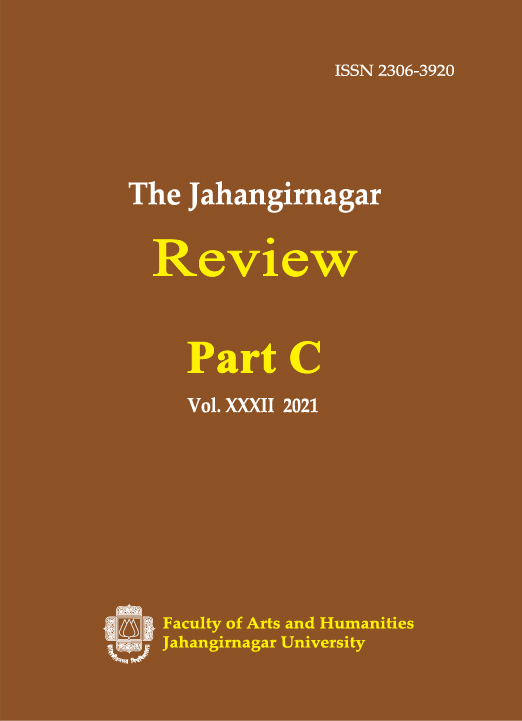Possibilities of Local Integration of the Rohingyas in Bangladesh
Main Article Content
Abstract
Approximately 1.2 million Rohingya are stranded in Cox's Bazar, Bangladesh, vulnerable and unsure of their destiny. Bangladesh confronts numerous issues in sheltering this vast number of Rohingyas. In terms of the UNHCRs suggested solution to the refugee issue, voluntary return, resettlement, and local integration are extremely difficult to implement in the case of Rohingyas. No authority can predict when voluntary repatriation will start, as Myanmar shows no interest in taking back the Rohingyas, and as per current Bangladesh government policy, no matter how difficult it is for them to accommodate the Rohingyas, they will not repatriate them forcefully. Further, the Rohingyas want to return to Myanmar, but only if the Myanmar government changes the discriminatory laws and accepts them as citizens. Likewise, resettling the Rohingyas in another country is also not possible, as the Bangladesh government considers this a pull factor, and also, the refugee selection criteria of third countries make the resettlement process more complex. Based on these circumstances, this study examines the possibilities of Rohingyas integrating locally in Bangladesh. It examines the perspectives of the Rohingya, the government of Bangladesh, and the host communities on local integration. The study demonstrates that the Rohingya, the GoB, and host communities oppose local integration, although some IGOs, such as the World Bank, support it. Furthermore, the study implies that economically integrating Rohingyas into camps can be a short-term solution as long as voluntary repatriation is undertaken. To investigate this further, a complete field study is required.

